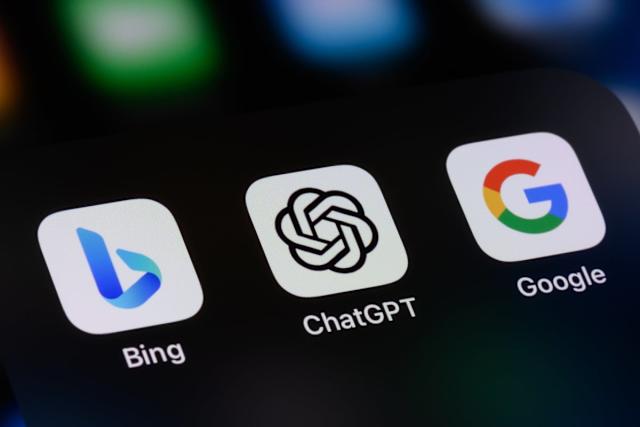AI: The Future of Jobs for Student-Athletes and New Career Paths

The rapid growth of artificial intelligence (AI) has sparked widespread concern about the future of the job market. With many industries shifting to automated processes, experts warn that job opportunities for young people, especially recent graduates, may be at risk. However, while AI might disrupt some career paths, there are also emerging job opportunities that could benefit Generation Z, including student-athletes who are preparing for their future careers.
As we approach the next phase of our professional lives, it’s clear that AI will play a major role in shaping what opportunities are available to us. While some experts predict significant job losses due to AI, others believe that AI will create entirely new roles, especially in sectors like tech, healthcare, and creative industries.
The AI Job Landscape
According to experts, the types of jobs being impacted by AI will vary, but one thing is clear: while AI will certainly replace certain tasks, it will also create many new roles that require creativity, critical thinking, and human oversight. Harry Holzer, a professor of public policy at Georgetown University, explains that although AI might automate certain tasks, we still have control over how the technology evolves and how we adapt to it.
For student-athletes like us, it’s important to focus on jobs that not only leverage our unique skills but also complement the capabilities of AI. This might include roles that involve evaluating the quality and authenticity of AI outputs, or jobs that demand creative problem-solving that AI can’t replicate. For example, professions in the healthcare field, such as diagnostic specialists, could see a rise in demand as AI becomes more capable of handling routine tasks but lacks the nuanced expertise that human professionals bring.
AI-Specific Roles on the Rise
AI-specific jobs are already making their way into various industries, and they’re expected to increase rapidly in the coming years. According to Glassdoor data, the share of job postings related to AI doubled from 2023 to 2024, with another 56% increase reported this year. Positions in AI training and optimization are growing, especially for individuals with expertise in specific subjects like foreign languages, technology, or even healthcare.
However, as the technology evolves, certain jobs, such as “prompt engineers” who create queries for AI systems, have already started to disappear. This reflects the broader trend of AI becoming more advanced and able to take on a larger range of tasks with less human involvement. It’s an important reminder for student-athletes to consider not just the jobs that exist now, but the potential roles AI will bring in the future, many of which we may not yet fully understand.
Adapting to AI: Preparing for a Changing Job Market
For those of us in Generation Z, it’s essential to be flexible and adaptable as we enter the workforce. The path to new roles will likely be uncertain, and experts advise against making career decisions based solely on the current state of AI. David Autor, an MIT professor, cautions that we are not yet able to predict exactly what the new job landscape will look like. However, we can anticipate that the roles we pursue will need to emphasize skills that AI can’t easily replicate: creativity, emotional intelligence, and critical thinking.
As student-athletes, we already possess many of these qualities. Our experiences in sports—such as teamwork, leadership, and time management—can be leveraged in a variety of emerging roles in fields such as AI ethics, healthcare, and even AI training. These roles will require human insight and expertise to guide the technology’s development and use, ensuring that it benefits society in meaningful ways.
The Challenge of Predicting the Future
One of the most significant challenges with AI-driven change is predicting the types of jobs that will emerge. While we know AI will alter existing roles, experts like Ethan Mollick, a business professor at the University of Pennsylvania, acknowledge that the scope and nature of new jobs remain unclear. AI might eliminate some generalist roles, but it may also lead to a boom in specialized positions requiring human oversight and creativity.
The key for student-athletes entering the workforce will be to focus on adaptability and staying informed about the latest AI trends and developments. As AI continues to evolve, we need to be prepared to embrace new opportunities and redefine our careers in ways that complement these changes.
While AI might cause disruption, it also holds the potential to open up exciting new career paths, especially for those who are proactive in adapting to the evolving job market. As student-athletes, we have a unique advantage in leveraging the skills we’ve developed in sports—discipline, leadership, and problem-solving—to succeed in an AI-driven world. Rather than fearing the future, we should embrace the possibilities that AI can bring, focusing on the skills that will remain valuable no matter how the job market shifts.

